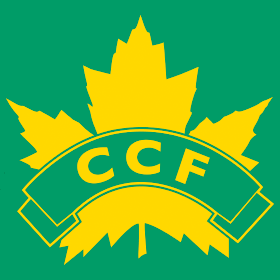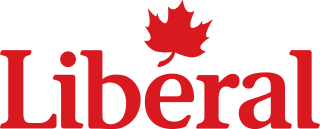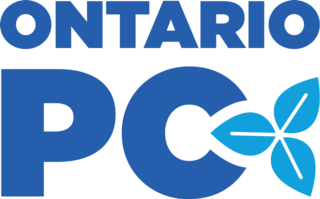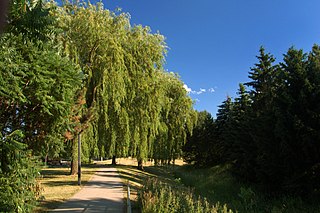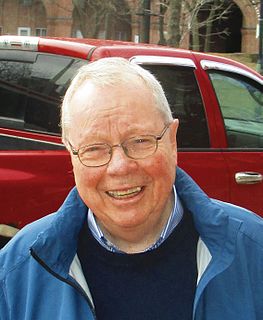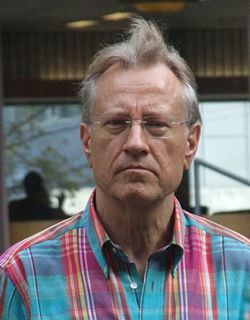
The Toronto City Council is the governing body of the City of Toronto in Ontario, Canada. Members represent wards throughout the city, and are known as councillors. The passage of provincial legislation in the summer of 2018 established that the number of wards be reduced from 44 to 25 and that they be based upon the city's federal electoral districts as of the year 2000. While the federal districts have been redistributed since then, the ward boundaries remain the same. The city council had at its peak 45 members: 44 ward councillors plus the mayor. On September 19, 2018 an Ontario Court of appeals granted a stay order of a previous court decision that would have prevented this reduction, thus re-establishing the move to 25 wards. The actual court appeal of Bill 5 has yet to be scheduled, but was heard subsequent to the municipal election on October 22, 2018.
Alan Tonks is a former Canadian politician. He was the Liberal MP for the federal riding of York South—Weston in Toronto from 2000 to 2011, and was the final Metro Toronto Chairman before the amalgamation of Metro Toronto into the new City of Toronto.
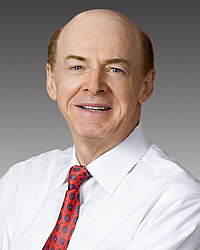
Tony Ruprecht is a former Canadian politician. His first elected position was as an alderman in the old Toronto City Council, in the late 1970s. He became a member of the Legislative Assembly of Ontario in 1981, and served in premier David Peterson's cabinet as minister without portfolio from 1985 to 1987. Ruprecht represented Toronto's Parkdale and then Davenport constituencies for the Liberal Party of Ontario for 30 years. On July 5, 2011, he announced that he was leaving politics and would not seek re-election in the October 2011 provincial election.
The 1991 Toronto municipal election was held on November 12, 1991 to elect councillors in Metropolitan Toronto, Ontario, Canada, and mayors, councillors and school trustees in Toronto, York, East York, North York, Scarborough and Etobicoke.
Donald Dean Summerville was a municipal politician in Toronto, Ontario, and served as Mayor of Toronto, briefly, until his death.
The Toronto municipal election of 1978 held on Monday, November 13, 1978, was the first seriously contested mayoralty race in Toronto, Ontario, Canada, since David Crombie took office in the 1972 election. Crombie left municipal politics earlier in 1978 to seek and win a seat in the House of Commons of Canada as the Progressive Conservative Member of Parliament for Rosedale electoral district.
The 1985 Toronto municipal election was held to elect members of municipal councils, school boards, and hydro commissions in the six municipalities that made up Metropolitan Toronto, Ontario, Canada. The election was held on November 12, 1985.
Karl Jaffary is a Canadian former municipal politician in Toronto, Ontario.
The 1982 Toronto municipal election was held on November 8, 1982, in Metropolitan Toronto, Ontario, Canada. Mayors, controllers, city councillors and school board trustees were elected in the municipalities of Toronto, York, East York, North York, Etobicoke and Scarborough.
The 1980 Toronto municipal election was held on November 10, 1980 in Metropolitan Toronto, Ontario, Canada. Mayors, controllers, city councillors and school board trustees were elected in the municipalities of Toronto, York, East York, North York, Etobicoke and Scarborough.
The 1974 Toronto municipal election was held on December 2, 1974 in Metropolitan Toronto, Ontario, Canada. Mayors, controllers, city councillors and school board trustees were elected in the municipalities of Toronto, York, East York, North York, Etobicoke and Scarborough.
George Ben was an Ontario lawyer and political figure. He represented Bracondale and then Humber in the Legislative Assembly of Ontario from 1965 as a Liberal member until his defeat in the 1971 provincial election. Ben was a member of Toronto City Council in the early 1960s, representing Ward 5, and returned to council in the 1972 municipal election. He was re-elected for the final time in 1978, and died in office on December 17, 1978.
Margaret Campbell was a politician in Ontario, Canada. She was a Liberal member of the Legislative Assembly of Ontario who represented the downtown Toronto riding of St. George. Prior to her provincial role she served as a municipal councillor in Toronto from 1958 to 1962 and then as a member of the Board of Control from 1964 to 1969. She ran for mayor of Toronto in 1969 but came in second to William Dennison.
The 1972 Toronto municipal election was held December 4, 1972, to elect the governments of Toronto, Ontario, Canada, the five other boroughs, and the government of Metro Toronto as well.
Municipal elections were held in Toronto, Ontario, Canada, on December 5, 1966. The elections were the first for Toronto after its merger with several smaller suburban communities on January 1, 1967. Forest Hill and Swansea were annexed by the City of Toronto, Leaside was merged with the Township of East York to become the Borough of East York. Weston was combined with the Township of York to form the Borough of York. The Village of Long Branch and the towns of Mimico and New Toronto were merged with the Township of Etobicoke to form the Borough of Etobicoke.
Municipal elections were held in Toronto, Ontario, Canada, on December 3, 1962. Incumbent mayor Nathan Phillips, then the longest-serving mayor in Toronto history, lost to Controller Donald Summerville by a significant margin.
Municipal elections were held in Toronto, Ontario, Canada, on December 5, 1960. Six-year incumbent mayor Nathan Phillips was challenged by former mayor Allan Lamport and Controller Jean Newman. Phillips was returned to office.
Municipal elections were held in Toronto, Ontario, Canada, on December 1, 1958. Four year incumbent mayor Nathan Phillips won reelection against Controller Ford Brand, who was supported by the Co-operative Commonwealth Federation and Toronto Labour Council, and Controller Joseph Cornish.

